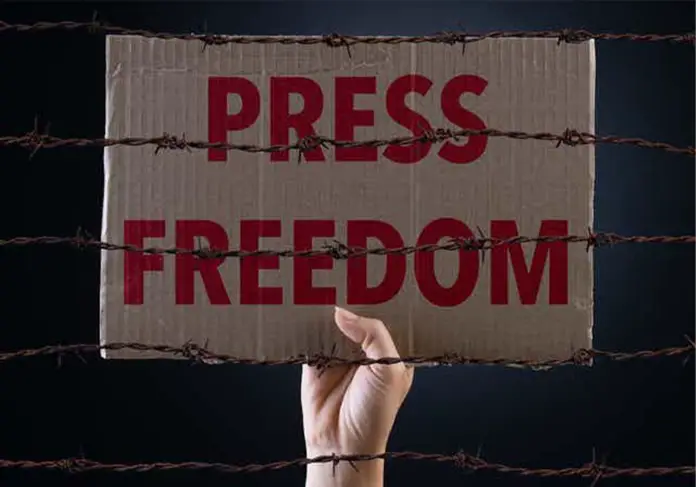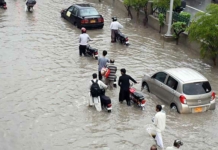The latest report compiled by the Reporters Without Borders, an international non-governmental organization working to safeguard the right to information, about press freedom in Pakistan portrays a rather dismal picture. It shows the overall deteriorating condition of media freedom in the country.
According to the annual global indicator that measured the status of media practices in 180 countries, it was revealed that freedom of information is shrinking and its violations are on the rise. The World Press Freedom Index has placed Pakistan at 157 among 180 countries, compared to its previous positions at 145 in 2021 and 139 in 2018. Reportedly, Pakistan has fallen 12 points on the press freedom score in one year and now ranks even below Afghanistan, India, Sri Lanka, and Nepal but above Bangladesh, Iran, and China. The global indicator reports a total of 86 cases of attacks and violations against media and its practitioners, including journalists, that took place in Pakistan over the course of one year – between May 2021 and April 2022.
Media pluralism and independence, respect for the safety and freedom of journalists and the legislative, institutional and infrastructural environment in which the media operates were some of the yardsticks for the compilation of this index. This is not good news for the journalist community and those who are struggling to keep media freedom intact. The profession of journalism has always been a challenging job in Pakistan.
There are also other states where freedom of information and expression is shrinking and its violations are on the rise. This is not good news for the journalist community and those who are struggling to keep media freedom intact. Why is press freedom declining? An increase in war hysteria among various states, insurgencies by non-state actors and worldwide economic crises are responsible for restrictions on the people’s right to information.
Authoritarian regimes control media through various tactics. After technological advances, new tools of mass media are being used and playing a vibrant role in building public opinion. However, with an increase in the potential and role of media, the pressure is also increasing on the fourth pillar of democracy. Media freedom is critically necessary for a democratic and progressive society. It acts as a public watchdog and provides an impetus to positive changes in society.
Despite the fact that the curbs against it are mounting, media itself should not back down and should continue to play its due role in society. It should keep the right of people to information intact at all costs. At the same time, media needs to act sensibly and should not adopt biased attitudes. Strict adherence to rules and media ethics must be upheld in line with democratic norms. In Pakistan, media got its freedom after nearly 40 years of struggle against draconian laws. Yet media sovereignty comes under attack during various regimes. It would be better for the government not to inflict undue curbs on the media that could lead to more chaos in the country.
Pakistan has already become notorious for increasing incidents of killings of journalists and is considered one of the most dangerous places for media persons in the world. Media organizations themselves should take stringent measures as the scale of the threat is very large and law enforcement agencies by themselves cannot ensure the security of all media persons. Coordinated efforts by the authorities and managements may be the best way forward for the security of journalists.
Stronger preventive measures and protection must be undertaken while reviewing existing security protocols for possible loopholes. In an environment of fear, the media cannot play its due role, which is critical in countering the narrative of those who want to stifle media freedom. If journalists are harassed in such a way, it will weaken the battle for hearts, minds and perceptions, thereby giving more space to the menace of aristocracy and authoritarian regimes.
In Pakistan, successive regimes indulge in blame game regarding the implementation of a press freedom regime. Different political parties keep their self-interest supreme while implementing press freedom law. Even the elected leadership takes media as a threat to their rule and introduces laws to curb media freedom. Previously, the Pakistan Tehreek-e-Insaf-led government introduced the Pakistan Media Development Authority (PMDA), which was scrapped by the Pakistan Muslim League-Nawaz government that assumed power in April 2022. According to the journalists, the introduction of PMDA was an ill-conceived strategy to regulate all media – print, television, radio, films, social media and digital. Press freedom remains a tricky situation in Pakistan, where big media houses rely on propaganda for getting good ratings or to support a particular political party, which suits their interests.
So, press freedom can only be ensured when all stakeholders will play their due role in a positive manner. Stifling press freedom is bad by the authoritarian regimes and at the same time misuse of this channel can also have a negative impact on society.







